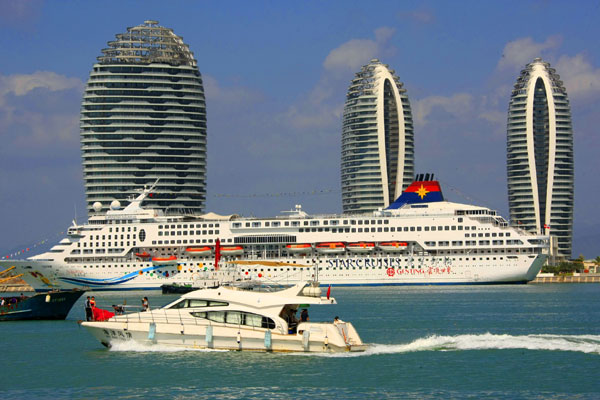ASEAN will gain from Maritime Silk Road
- By Jiang Zhida
 0 Comment(s)
0 Comment(s) Print
Print E-mail China Daily, March 31, 2015
E-mail China Daily, March 31, 2015
|
|
|
[Photo by Huang Yiming/China Daily] |
Will China's 21st Century Maritime Silk Road initiative benefit the Association of Southeast Asian Nations' member states? The answer is "yes", because it is a win-win initiative based on equality. By joining the initiative, the developing countries in the region will get funds for improving their infrastructure, deepening investment cooperation, and increasing cultural and personnel exchanges, which are necessary for their economic development.
According to Asian Development Bank's estimates, Asian economies need $8 trillion between 2010 and 2020 to improve their infrastructure in order to ensure sustained economic development. Most of the economies cannot fully self-fund such projects, but China can, through the proposed Silk Road Fund and the Asian Infrastructure Investment Bank.
The 21st Century Maritime Silk Road will facilitate more exchanges on the education, tourism, personnel training and cultural fronts, which, in turn, will enhance understanding between the peoples of different countries and promote inclusive development.
ASEAN member states have the geographical advantage to benefit from China's initiative. ASEAN and China have a long history of economic and cultural exchanges. They already have several effective cooperation mechanisms, including the 10+1 (10 ASEAN members plus China) mechanism. The sound investment environment and political stability that ASEAN economies have will also help them attract more funds and investments from China, making them big beneficiaries of the new Maritime Silk Road.
China's initiative will open a new cooperation road that can respond to the multiple development needs of Asian economies. And owing to its multiple cooperative mechanisms, the 21st Century Maritime Silk Road will be compatible with other regional economic cooperation mechanisms.






